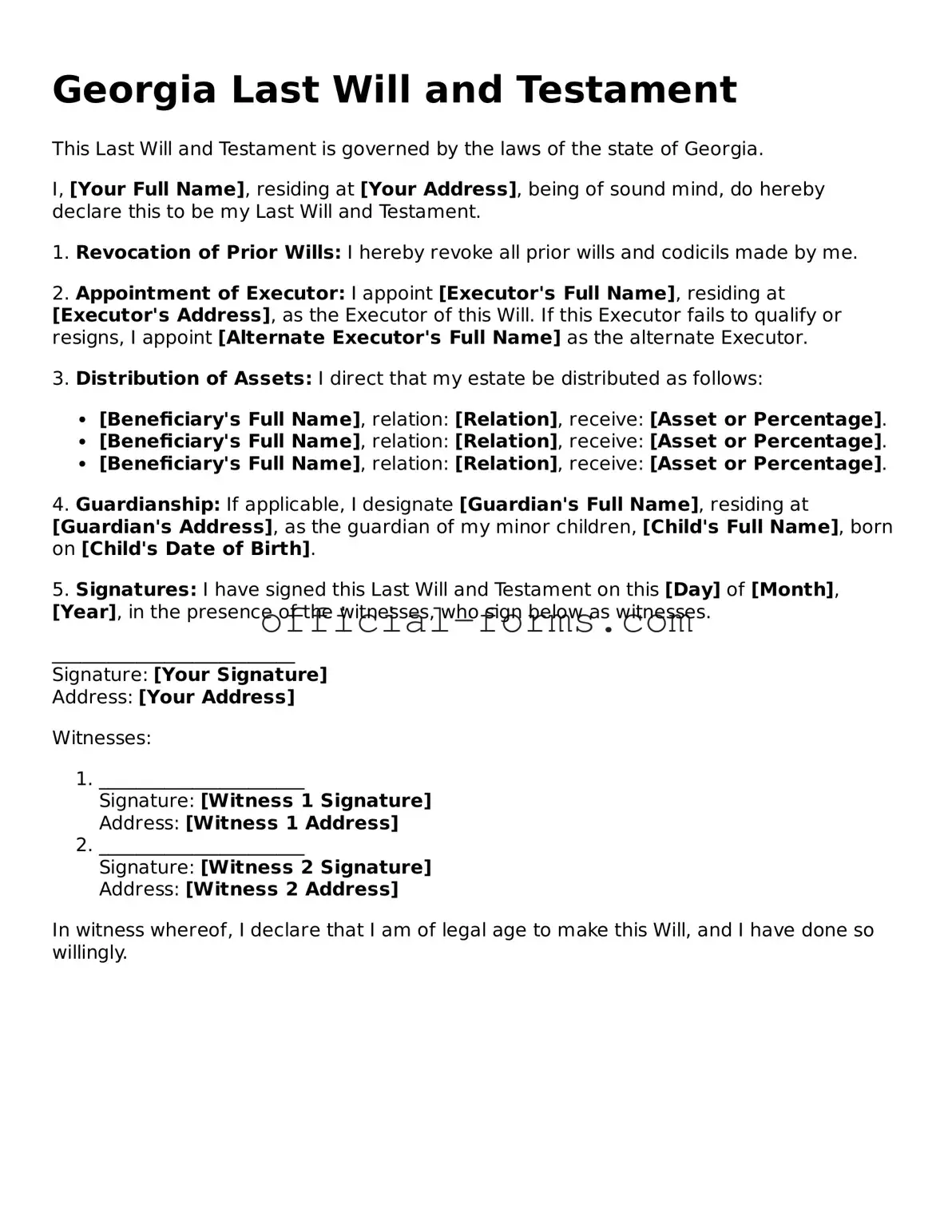Official Georgia Last Will and Testament Document
The Georgia Last Will and Testament form is a legal document that outlines an individual's wishes regarding the distribution of their assets after death. This form serves as a crucial tool for ensuring that one's estate is managed according to personal desires, providing clarity and direction for loved ones. Understanding its components and requirements can empower individuals to make informed decisions about their legacy.
Open My Last Will and Testament Now

Official Georgia Last Will and Testament Document
Open My Last Will and Testament Now
Don’t leave your form incomplete
Finish Last Will and Testament online quickly from start to download.
Open My Last Will and Testament Now
or
➤ PDF
